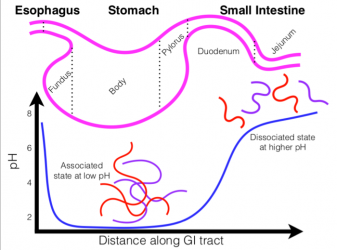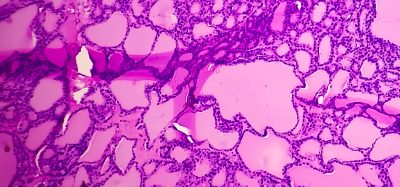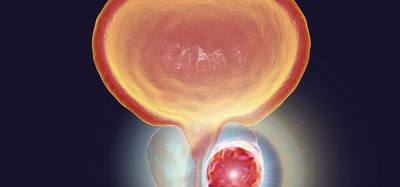A new polymer system promises to revolutionise drug delivery
Posted: 3 May 2022 | Ria Kakkad (Drug Target Review) | No comments yet
Scientists have engineered a new class of material which is able to both withstand the harsh acidic conditions of the stomach and then dissolve predictably in the comparatively gentle environment of the small intestine.


Although the common method of drug delivery is through swallowing medication orally, there is a huge amount of therapeutics which cannot be admitted this way as they cannot withstand the stomach’s harshly acidic environment. Researchers at the University of Massachusetts Amherst, US recently announced that they have engineered a new class of material, called a “polyzwitterionic complex,” (pZC) which is able to both withstand the harsh acidic conditions of the stomach and then dissolve predictably in the comparatively gentle environment of the small intestine. This property means that pZCs could help transform the delivery of medicines, from familiar oral antibiotics to new classes of delicate protein therapeutics. The study was recently published in Nature Communications.


Inside the acidic environment of the stomach, pZCs remain in their associated state, but disassociate as they move into the intestine
[Credit: Khatcher Margossian, https://doi.org/10.1038/s41467-022-29851-y].
The study describes pZC, which is formed through a process known as “complex coacervation”. In their system, two types of charged polymers, a polyzwitterion and a polyelectrolyte, associate to form a protective droplet inside of which medications can travel. pZC has to perform is that it not only needs to be tough enough to withstand the highly acidic stomach environment, it also has to disassemble in the much gentler, neutral conditions of the small intestine.
Surprisingly, the key to the group’s success was not to strengthen the bonds between the polyzwitterion and polyelectrolyte but to weaken them.
Biomarkers aren’t just supporting drug discovery – they’re driving it
FREE market report
From smarter trials to faster insights, this report unpacks the science, strategy and real-world impact behind the next generation of precision therapies.
What you’ll unlock:
- How biomarkers are guiding dose selection and early efficacy decisions in complex trials
- Why multi-omics, liquid biopsy and digital tools are redefining the discovery process
- What makes lab data regulatory-ready and why alignment matters from day one
Explore how biomarkers are shaping early drug development
Access the full report – it’s free!
The group’s research is driven by the real-life needs of medical practitioners. Not only will these materials allow clinicians to deliver the right dosages of drugs more efficiently, but they will vastly increase the number of medications that can be taken orally.
“This is a foundational technology that can alter how we treat disease,” concluded Khatcher Margossian, the lead author of the study. “We hope that our work will make its way into clinicians’ hands and help them save lives.”
Related topics
Drug Delivery, Drug Targets, Therapeutics
Related organisations
University of Massachusetts Amherst
Related people
Khatcher Margossian








